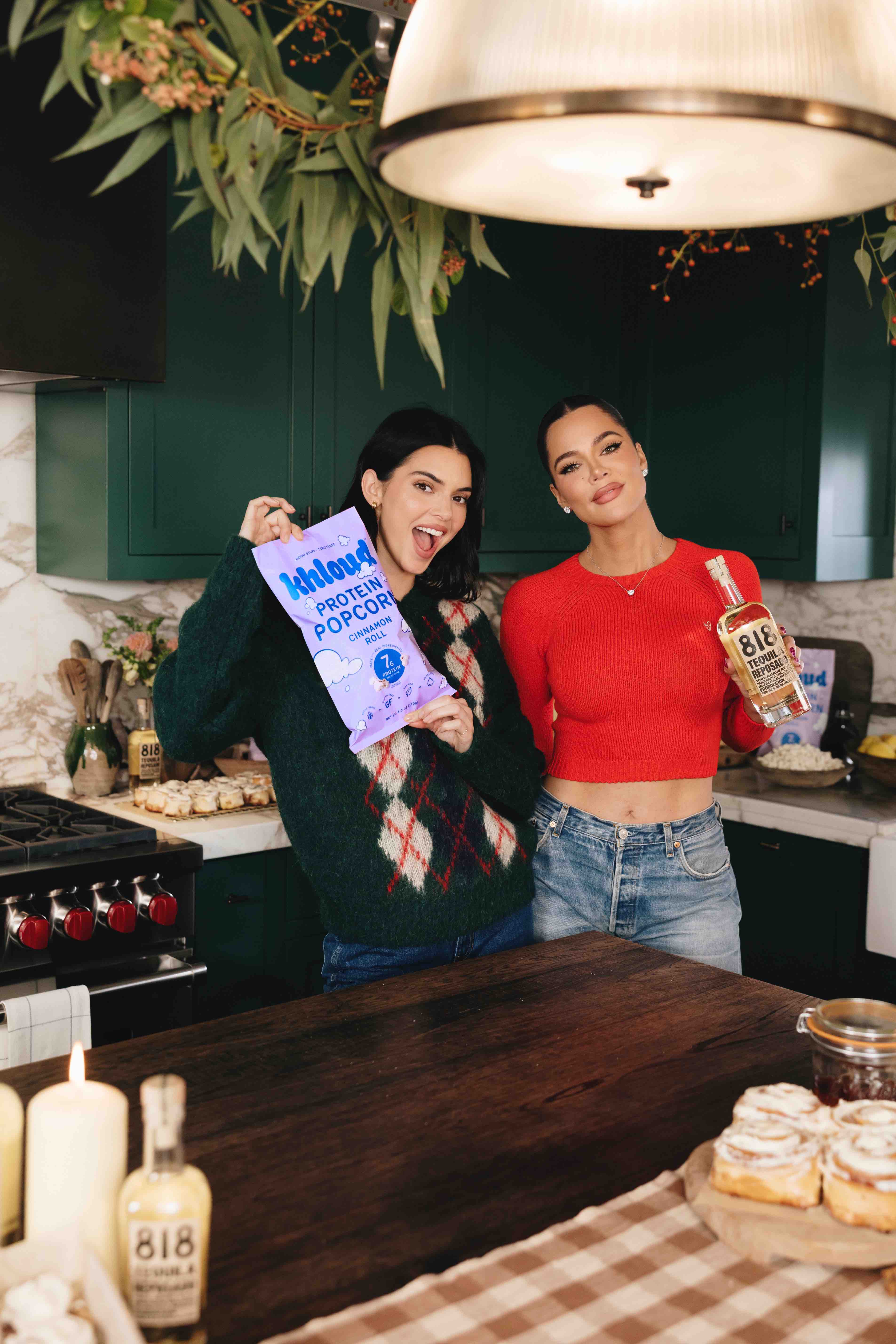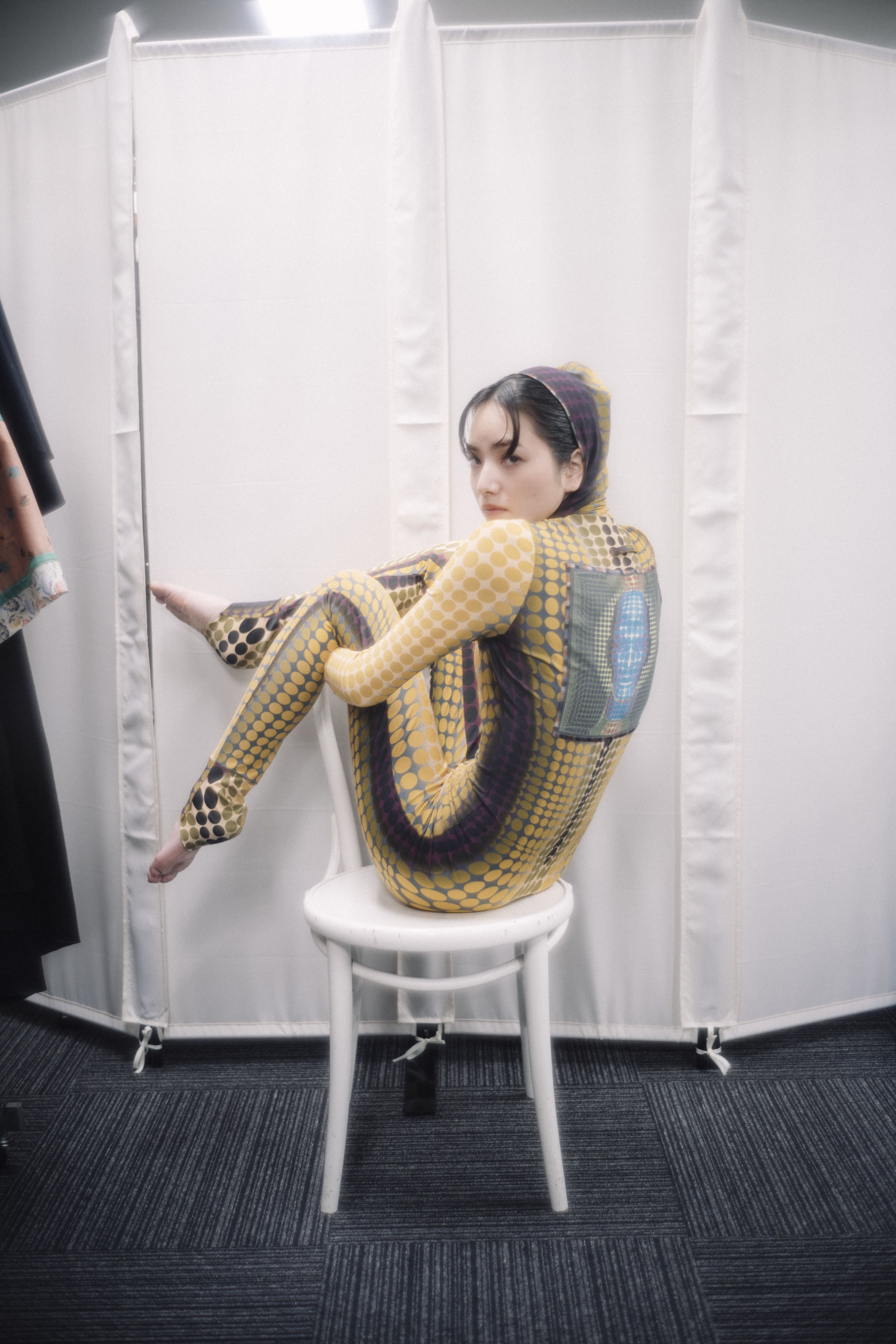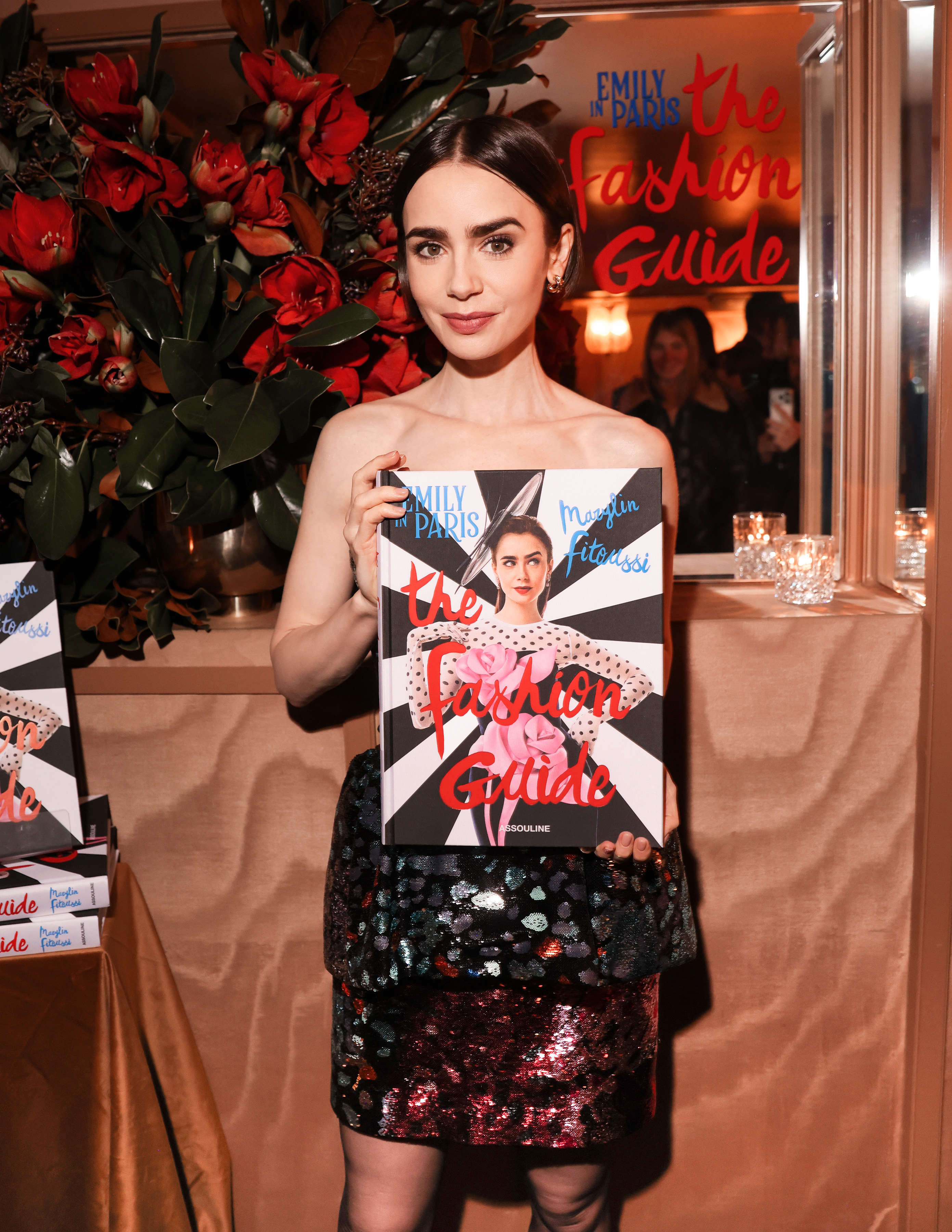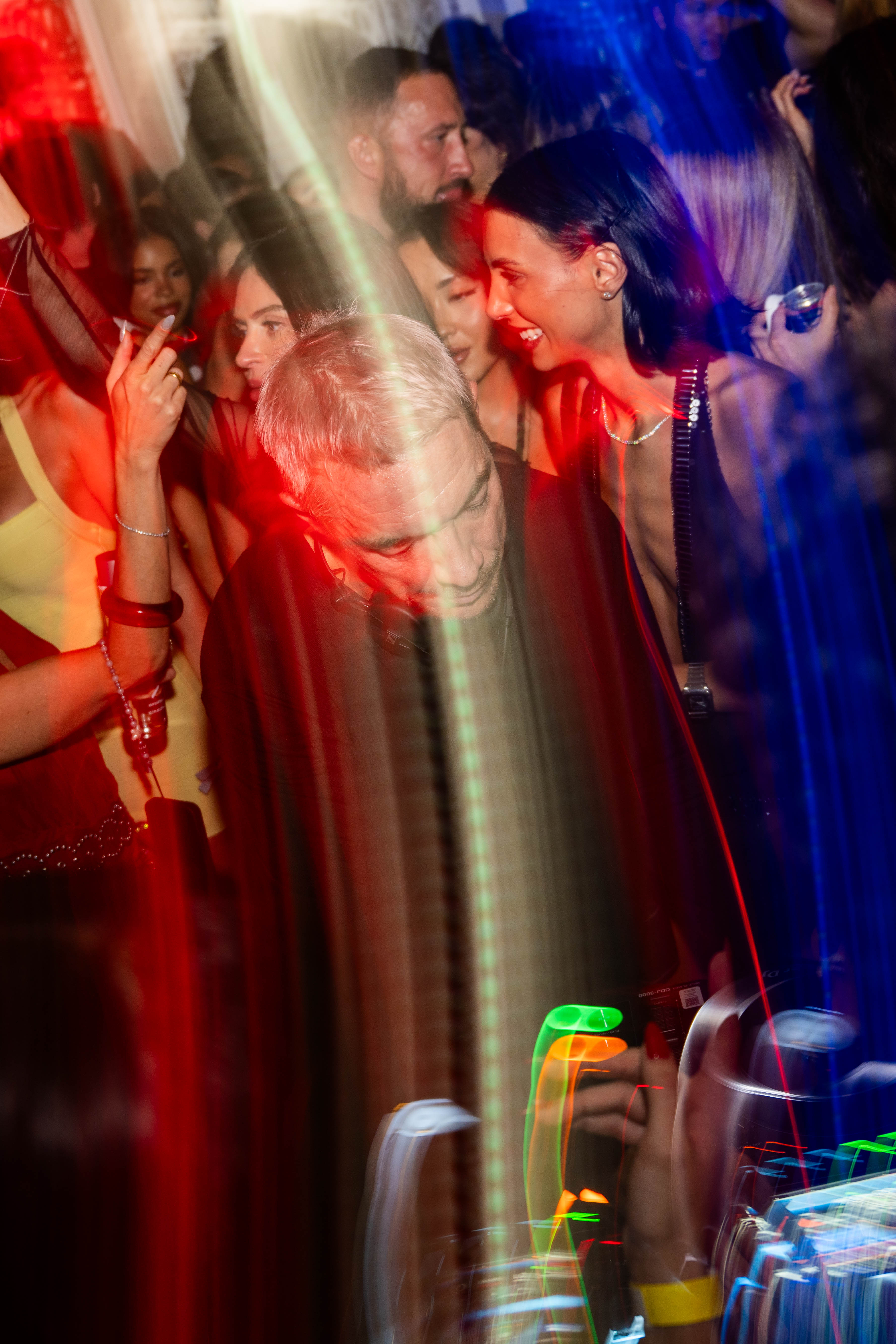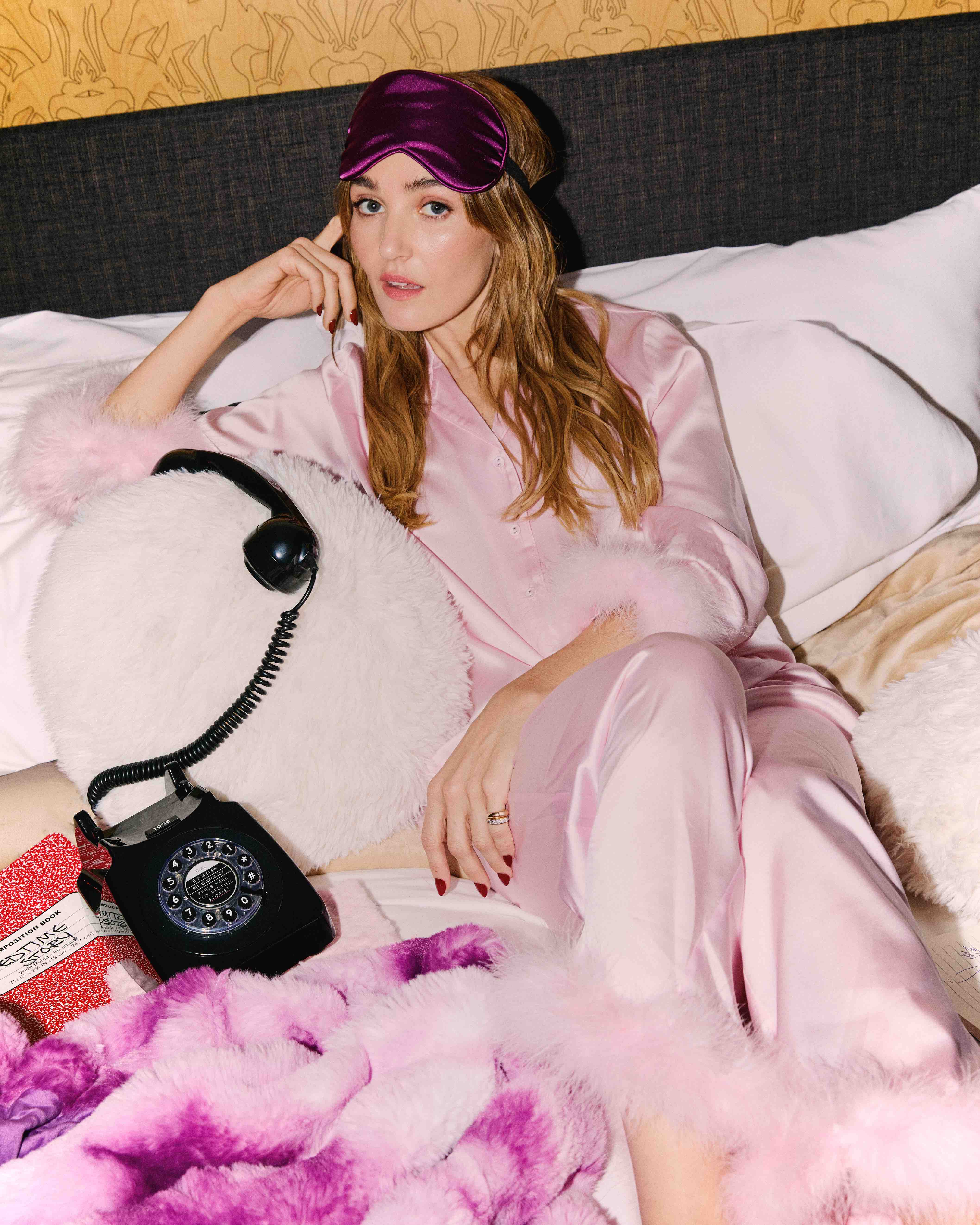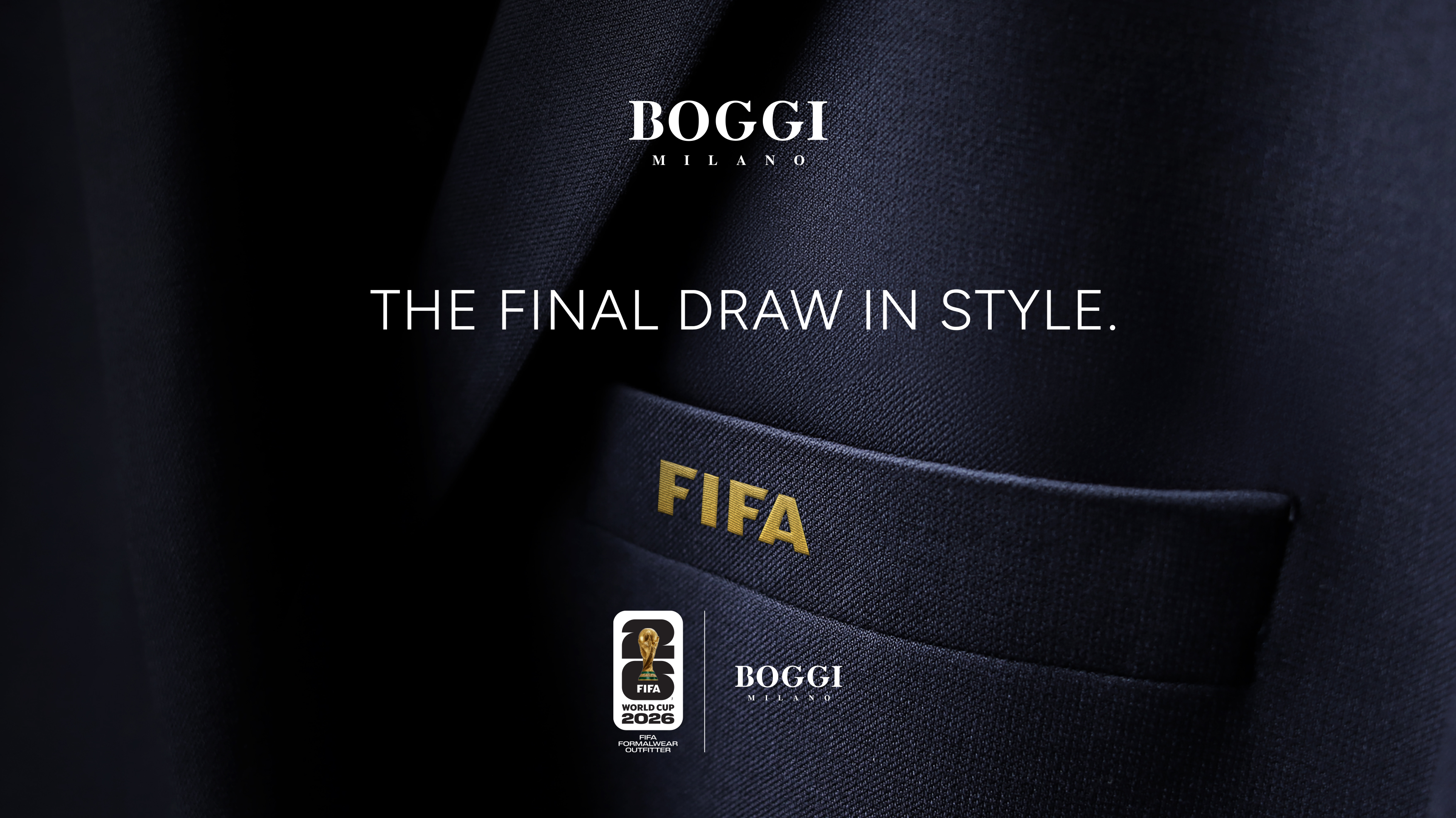

While it may have come and gone as the calendar goes, we’re still reeling from the fourth season of Netflix’s ‘13 Reasons Why’. The hit show’s latest and final season sees its thrilling storyline compound, as the motives and directions taken by our favorite characters following traumatic experiences at Liberty High hit an all-time high crescendo.
As such, we’re delighted to present this interview with series lead, venerable Flaunt [alum](https://flaunt.com/content/ross-butler), and all around awesome guy, Ross Butler, who plays the crowd favorite jock that struggles with the weight of mental health’s ups and downs. Our conversation actually took place a few months back, and then, well, the world turned on its side and the rest is history.
Let’s get into it then! Read below about Butler’s thoughts on the circumstances afoot and how he actualized his character in the final installment of the massive hit series.
**In this season the students stand up against authorities for the unfair treatment of certain students based on race, which leads to a student-led protest. Do you think this reflects any issues in our current reality and the actions people have taken to address such issues?**
I think it's interesting because, with every season that has come out, the topics we’ve tackled in the show have just coincidentally coincided with social movements. I think the students in our show absolutely knew what they saw was unfair. They had a walkout and made their voices heard. I think what's most important, especially now, is that a lot of people are learning that silence isn’t helpful in any way. Silence is not the answer to making a change if you are feeling uncomfortable or if you're feeling like you are not heard. I think that the theme of our show is to start a conversation. Don't judge or make assumptions and don’t blast other people, have a conversation.
**The show deals with a lot of sensitive topics, were any scenes particularly hard to film?**
There was one storyline in the season where Zach deals with his mom. Being an Asian American actor, something that was kind of known about being Asian American is that you have a tiger mom that wants you focused on this or that and it is largely unemotional. That scene was especially hard for me, not to understand it, but more so to portray it because it was playing super close to home. It was emotional to try to tell my Asian American brothers and sisters that you need to open up to your parents and they should probably open up too. It was a tough, but rewarding storyline for me.
**How are you similar and different from Zach?**
I think I'm similar to Zach in that Zach is rational. You see this a lot in season 3 where they are trying to take care of Tyler and instead of sending him to therapy, they decide to babysit him. Zach is the only character that stands up and says, no we’re not going to fix him, he needs therapy. That is always how Zach has been; he has always had a good moral compass and a good logical compass. How I'm different from Zach is that Zach doesn’t always speak up for it, Zach was a little bit of a coward at the beginning, and over the 4 seasons, you kind of see him turn into a man and take responsibility for himself and his friends.
**Zach spends a lot of the 4th season not sober, how was it like to portray someone with substance abuse issues?**
With Zach’s substance abuse problems in the fourth season, we kind of wanted to portray him differently than usual. That is, Zach had a really sad history and dealing with the aftermath of Bryce and thinking he murdered Bryce by accident, he spirals out of control. Instead of wallowing in it and seeing himself not have a future anymore because of football and everything, he decides to go the opposite direction and be like, I'm just going to live life the way I want to and do what I want without thinking of the consequences. In that respect, playing Zach felt a lot more reckless than I'm used to playing him. So getting into that mindset was a little cathartic for me as well, I started to let go a little bit with my diet and with my working out, allowed myself to just enjoy a little bit and weirdly that fed into not worrying about too many different things. It sounds like weird homework for yourself to do as an actor, to let yourself go. It did help, it was a different approach this season.
**The show tackles a variety of issues such as suicide, sexual assault, drug abuse, and mental health, what do you think are some important messages about such topics within the latest season?**
I think the most important message is the sense of community you create with people. I think today with social media and everything being able to be delivered to your home, people not leaving and COVID especially, people are getting more and more isolated from each other and they are not interacting or relying on each other. We see these kids, they've been through so much, and they are graduating, the one thing that has kept them alive is each other. They know they went through all of this together and they found refuge. I think now especially, you can't give up on your community and not only does that mean supporting other people but allowing other people to support you. Zach speaks to a lot of this this season, he goes lone wolf and it's really not good for his mental state. Instead of talking to his friends about his issues he isolates himself. I think the biggest message is don't be afraid to lean on the people in your community because we’re all going through this together and we need each other.


**Amidst this pandemic how has your headspace been and have you picked up any hobbies?**
I started learning Japanese and Arabic and am moving into the production side of things, I’m developing a couple of projects and jumping on more behind the scenes. I guess that's not a hobby, it is a part of my job, but it feels like a hobby because I'm enjoying learning about it on my own and learning with other producers. It’s about constantly learning something new for me and that's how I’ve kept sane.
**Season 4 is the last season of the show. How did it feel to end the journey?**
Ending the journey definitely feels weird. Spending four years and the majority of the year working on a project, it's weird not going back to it. It's like graduating from college or high school and moving somewhere else. You are not used to the schedule and you're not going to see everyone again, for work that is. It gives me a creative perimeter, I kind of compare every project that gets sent to me to 13, what the project is trying to say, how the project is handled or what statement we can make because I definitely think that art and culture dictate life and how people act. The things that we make have impressions on people.
**Photographed by** Ian Morrison
**Wearing** Gentle Monster
**Special Thanks** Netflix
 
While it may have come and gone as the calendar goes, we’re still reeling from the fourth season of Netflix’s ‘13 Reasons Why’. The hit show’s latest and final season sees its thrilling storyline compound, as the motives and directions taken by our favorite characters following traumatic experiences at Liberty High hit an all-time high crescendo.
As such, we’re delighted to present this interview with series lead, venerable Flaunt [alum](https://flaunt.com/content/ross-butler), and all around awesome guy, Ross Butler, who plays the crowd favorite jock that struggles with the weight of mental health’s ups and downs. Our conversation actually took place a few months back, and then, well, the world turned on its side and the rest is history.
Let’s get into it then! Read below about Butler’s thoughts on the circumstances afoot and how he actualized his character in the final installment of the massive hit series.
**In this season the students stand up against authorities for the unfair treatment of certain students based on race, which leads to a student-led protest. Do you think this reflects any issues in our current reality and the actions people have taken to address such issues?**
I think it's interesting because, with every season that has come out, the topics we’ve tackled in the show have just coincidentally coincided with social movements. I think the students in our show absolutely knew what they saw was unfair. They had a walkout and made their voices heard. I think what's most important, especially now, is that a lot of people are learning that silence isn’t helpful in any way. Silence is not the answer to making a change if you are feeling uncomfortable or if you're feeling like you are not heard. I think that the theme of our show is to start a conversation. Don't judge or make assumptions and don’t blast other people, have a conversation.
**The show deals with a lot of sensitive topics, were any scenes particularly hard to film?**
There was one storyline in the season where Zach deals with his mom. Being an Asian American actor, something that was kind of known about being Asian American is that you have a tiger mom that wants you focused on this or that and it is largely unemotional. That scene was especially hard for me, not to understand it, but more so to portray it because it was playing super close to home. It was emotional to try to tell my Asian American brothers and sisters that you need to open up to your parents and they should probably open up too. It was a tough, but rewarding storyline for me.
**How are you similar and different from Zach?**
I think I'm similar to Zach in that Zach is rational. You see this a lot in season 3 where they are trying to take care of Tyler and instead of sending him to therapy, they decide to babysit him. Zach is the only character that stands up and says, no we’re not going to fix him, he needs therapy. That is always how Zach has been; he has always had a good moral compass and a good logical compass. How I'm different from Zach is that Zach doesn’t always speak up for it, Zach was a little bit of a coward at the beginning, and over the 4 seasons, you kind of see him turn into a man and take responsibility for himself and his friends.
**Zach spends a lot of the 4th season not sober, how was it like to portray someone with substance abuse issues?**
With Zach’s substance abuse problems in the fourth season, we kind of wanted to portray him differently than usual. That is, Zach had a really sad history and dealing with the aftermath of Bryce and thinking he murdered Bryce by accident, he spirals out of control. Instead of wallowing in it and seeing himself not have a future anymore because of football and everything, he decides to go the opposite direction and be like, I'm just going to live life the way I want to and do what I want without thinking of the consequences. In that respect, playing Zach felt a lot more reckless than I'm used to playing him. So getting into that mindset was a little cathartic for me as well, I started to let go a little bit with my diet and with my working out, allowed myself to just enjoy a little bit and weirdly that fed into not worrying about too many different things. It sounds like weird homework for yourself to do as an actor, to let yourself go. It did help, it was a different approach this season.
**The show tackles a variety of issues such as suicide, sexual assault, drug abuse, and mental health, what do you think are some important messages about such topics within the latest season?**
I think the most important message is the sense of community you create with people. I think today with social media and everything being able to be delivered to your home, people not leaving and COVID especially, people are getting more and more isolated from each other and they are not interacting or relying on each other. We see these kids, they've been through so much, and they are graduating, the one thing that has kept them alive is each other. They know they went through all of this together and they found refuge. I think now especially, you can't give up on your community and not only does that mean supporting other people but allowing other people to support you. Zach speaks to a lot of this this season, he goes lone wolf and it's really not good for his mental state. Instead of talking to his friends about his issues he isolates himself. I think the biggest message is don't be afraid to lean on the people in your community because we’re all going through this together and we need each other.

While it may have come and gone as the calendar goes, we’re still reeling from the fourth season of Netflix’s ‘13 Reasons Why’. The hit show’s latest and final season sees its thrilling storyline compound, as the motives and directions taken by our favorite characters following traumatic experiences at Liberty High hit an all-time high crescendo.
As such, we’re delighted to present this interview with series lead, venerable Flaunt [alum](https://flaunt.com/content/ross-butler), and all around awesome guy, Ross Butler, who plays the crowd favorite jock that struggles with the weight of mental health’s ups and downs. Our conversation actually took place a few months back, and then, well, the world turned on its side and the rest is history.
Let’s get into it then! Read below about Butler’s thoughts on the circumstances afoot and how he actualized his character in the final installment of the massive hit series.
**In this season the students stand up against authorities for the unfair treatment of certain students based on race, which leads to a student-led protest. Do you think this reflects any issues in our current reality and the actions people have taken to address such issues?**
I think it's interesting because, with every season that has come out, the topics we’ve tackled in the show have just coincidentally coincided with social movements. I think the students in our show absolutely knew what they saw was unfair. They had a walkout and made their voices heard. I think what's most important, especially now, is that a lot of people are learning that silence isn’t helpful in any way. Silence is not the answer to making a change if you are feeling uncomfortable or if you're feeling like you are not heard. I think that the theme of our show is to start a conversation. Don't judge or make assumptions and don’t blast other people, have a conversation.
**The show deals with a lot of sensitive topics, were any scenes particularly hard to film?**
There was one storyline in the season where Zach deals with his mom. Being an Asian American actor, something that was kind of known about being Asian American is that you have a tiger mom that wants you focused on this or that and it is largely unemotional. That scene was especially hard for me, not to understand it, but more so to portray it because it was playing super close to home. It was emotional to try to tell my Asian American brothers and sisters that you need to open up to your parents and they should probably open up too. It was a tough, but rewarding storyline for me.
**How are you similar and different from Zach?**
I think I'm similar to Zach in that Zach is rational. You see this a lot in season 3 where they are trying to take care of Tyler and instead of sending him to therapy, they decide to babysit him. Zach is the only character that stands up and says, no we’re not going to fix him, he needs therapy. That is always how Zach has been; he has always had a good moral compass and a good logical compass. How I'm different from Zach is that Zach doesn’t always speak up for it, Zach was a little bit of a coward at the beginning, and over the 4 seasons, you kind of see him turn into a man and take responsibility for himself and his friends.
**Zach spends a lot of the 4th season not sober, how was it like to portray someone with substance abuse issues?**
With Zach’s substance abuse problems in the fourth season, we kind of wanted to portray him differently than usual. That is, Zach had a really sad history and dealing with the aftermath of Bryce and thinking he murdered Bryce by accident, he spirals out of control. Instead of wallowing in it and seeing himself not have a future anymore because of football and everything, he decides to go the opposite direction and be like, I'm just going to live life the way I want to and do what I want without thinking of the consequences. In that respect, playing Zach felt a lot more reckless than I'm used to playing him. So getting into that mindset was a little cathartic for me as well, I started to let go a little bit with my diet and with my working out, allowed myself to just enjoy a little bit and weirdly that fed into not worrying about too many different things. It sounds like weird homework for yourself to do as an actor, to let yourself go. It did help, it was a different approach this season.
**The show tackles a variety of issues such as suicide, sexual assault, drug abuse, and mental health, what do you think are some important messages about such topics within the latest season?**
I think the most important message is the sense of community you create with people. I think today with social media and everything being able to be delivered to your home, people not leaving and COVID especially, people are getting more and more isolated from each other and they are not interacting or relying on each other. We see these kids, they've been through so much, and they are graduating, the one thing that has kept them alive is each other. They know they went through all of this together and they found refuge. I think now especially, you can't give up on your community and not only does that mean supporting other people but allowing other people to support you. Zach speaks to a lot of this this season, he goes lone wolf and it's really not good for his mental state. Instead of talking to his friends about his issues he isolates himself. I think the biggest message is don't be afraid to lean on the people in your community because we’re all going through this together and we need each other.
 
**Amidst this pandemic how has your headspace been and have you picked up any hobbies?**
I started learning Japanese and Arabic and am moving into the production side of things, I’m developing a couple of projects and jumping on more behind the scenes. I guess that's not a hobby, it is a part of my job, but it feels like a hobby because I'm enjoying learning about it on my own and learning with other producers. It’s about constantly learning something new for me and that's how I’ve kept sane.
**Season 4 is the last season of the show. How did it feel to end the journey?**
Ending the journey definitely feels weird. Spending four years and the majority of the year working on a project, it's weird not going back to it. It's like graduating from college or high school and moving somewhere else. You are not used to the schedule and you're not going to see everyone again, for work that is. It gives me a creative perimeter, I kind of compare every project that gets sent to me to 13, what the project is trying to say, how the project is handled or what statement we can make because I definitely think that art and culture dictate life and how people act. The things that we make have impressions on people.
**Photographed by** Ian Morrison
**Wearing** Gentle Monster
**Special Thanks** Netflix

**Amidst this pandemic how has your headspace been and have you picked up any hobbies?**
I started learning Japanese and Arabic and am moving into the production side of things, I’m developing a couple of projects and jumping on more behind the scenes. I guess that's not a hobby, it is a part of my job, but it feels like a hobby because I'm enjoying learning about it on my own and learning with other producers. It’s about constantly learning something new for me and that's how I’ve kept sane.
**Season 4 is the last season of the show. How did it feel to end the journey?**
Ending the journey definitely feels weird. Spending four years and the majority of the year working on a project, it's weird not going back to it. It's like graduating from college or high school and moving somewhere else. You are not used to the schedule and you're not going to see everyone again, for work that is. It gives me a creative perimeter, I kind of compare every project that gets sent to me to 13, what the project is trying to say, how the project is handled or what statement we can make because I definitely think that art and culture dictate life and how people act. The things that we make have impressions on people.
**Photographed by** Ian Morrison
**Wearing** Gentle Monster
**Special Thanks** Netflix
